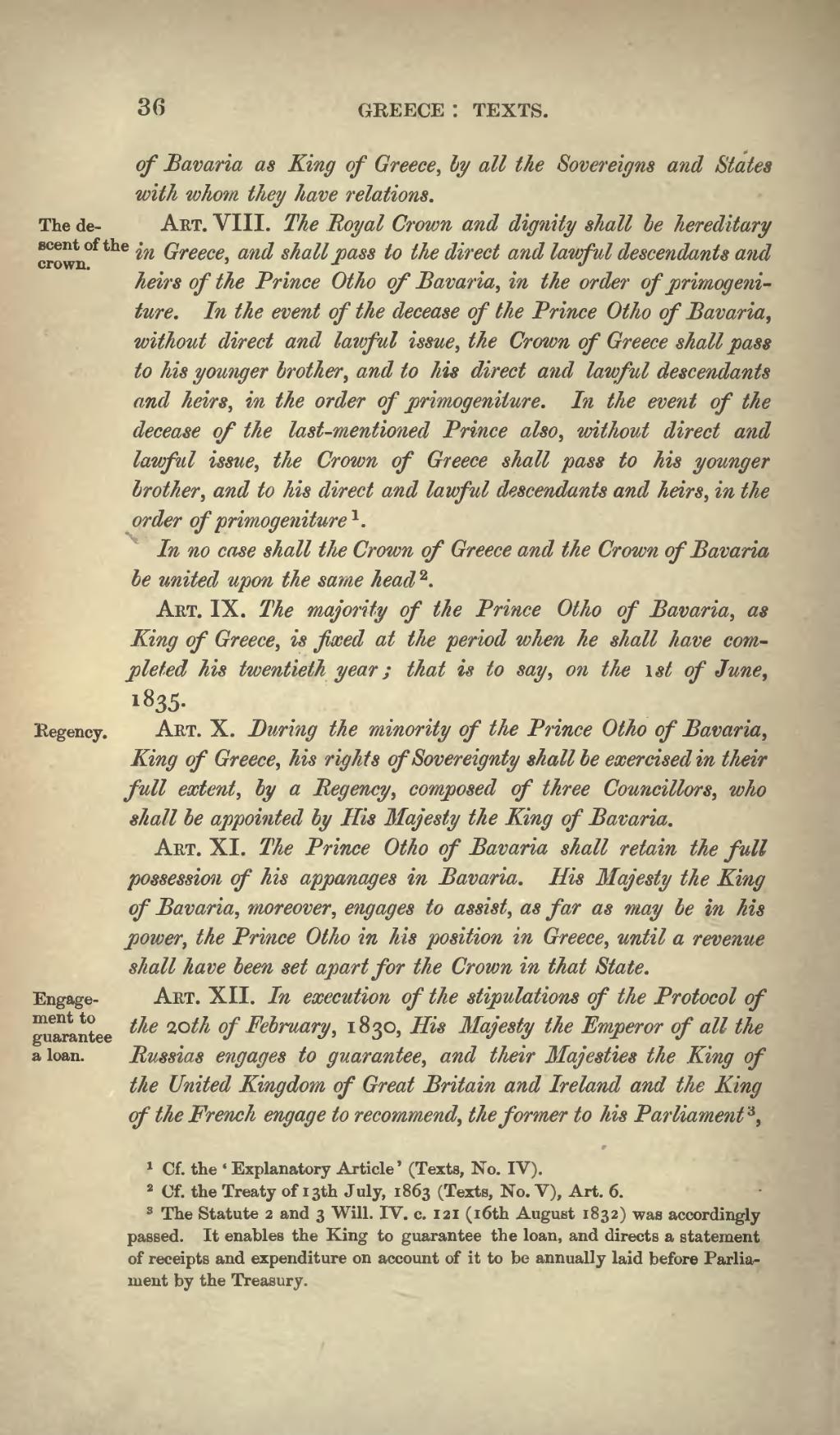of Bavaria as King of Greece, by all the Sovereigns and States with whom they have relations.
The descent of the crown.Art. VIII. The Royal Crown and dignity shall he hereditary in Greece, and shall pass to the direct and lawful descendants and heirs of the Prince Otho of Bavaria, in the order of primogeniture. In the event of the decease of the Prince Otho of Bavaria, without direct and lawful issue, the Crown of Greece shall pass to his younger brother, and to his direct and lawful descendants and heirs, in the order of primogeniture. In the event of the decease of the last-mentioned Prince also, without direct and lawful issue, the Crown of Greece shall pass to his younger brother, and to his direct and lawful descendants and heirs, in the order of primogeniture[1].
In no case shall the Crown of Greece and the Crown of Bavaria be united upon the same head[2].
Art. IX. The majority of the Prince Otho of Bavaria, as King of Greece, is fixed at the period when he shall have completed his twentieth year; that is to say, on the 1st of June, 1835.
Regency.Art. X. During the minority of the Prince Otho of Bavaria, King of Greece, his rights of Sovereignty shall be exercised in their full extent, by a Regency, composed of three Councillors, who shall be appointed by His Majesty the King of Bavaria.
Art. XI. The Prince Otho of Bavaria shall retain the full possession of his appanages in Bavaria. His Majesty the King of Bavaria, moreover, engages to assist, as far as may he in his power, the Prince Otho in his position in Greece, until a revenue shall have been set apart for the Crown in that State.
Engagement to guarantee a loan.Art. XII. In execution of the stipulations of the Protocol of the 20th of February, 1830, His Majesty the Emperor of all the Russias engages to guarantee, and their Majesties the King of the United Kingdom of Great Britain and Ireland and the King of the French engage to recommend, the former to his Parliament[3],- ↑ Cf. the 'Explanatory Article' (Texts, No. IV).
- ↑ Cf. the Treaty of 13th July, 1863 (Texts, No. V), Art. 6.
- ↑ The Statute 2 and 3 Will. IV. c. 121 (i6th August 1832) was accordingly passed. It enables the King to guarantee the loan, and directs a statement of receipts and expenditure on account of it to be annually laid before Parliament by the Treasury.
